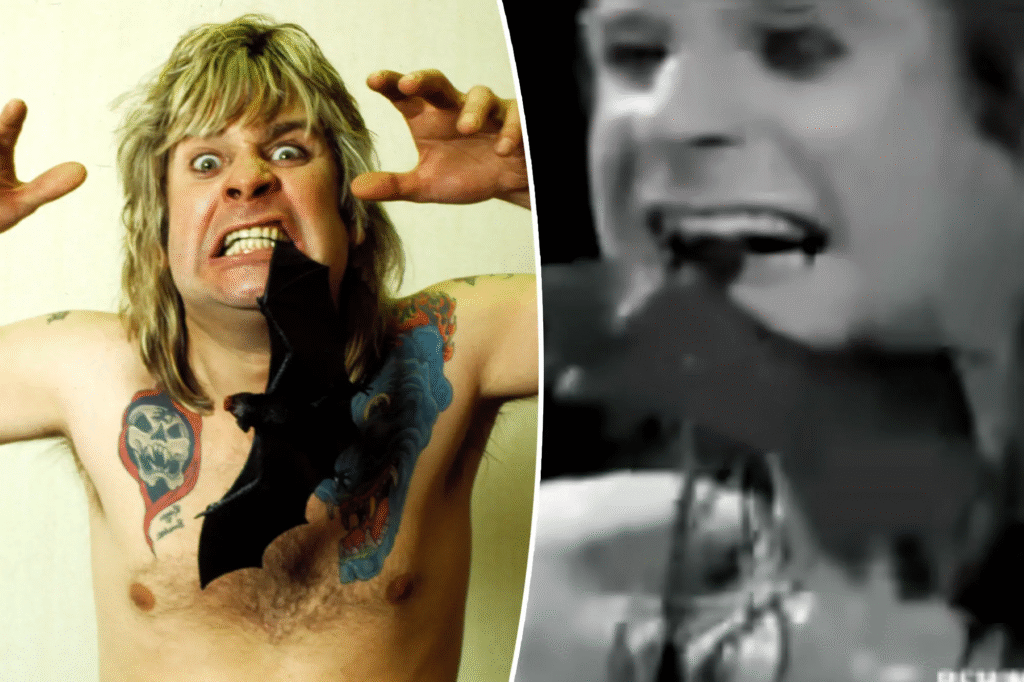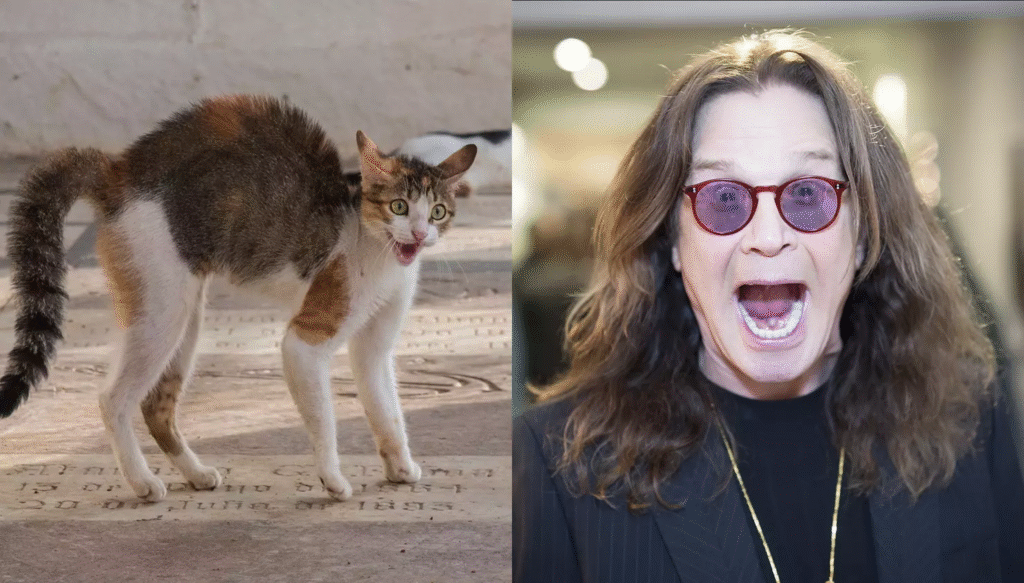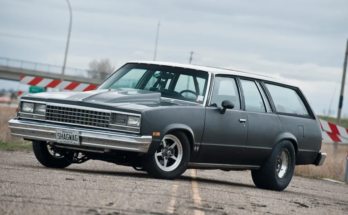Ozzy Osbourne, the “Prince of Darkness” and frontman of Black Sabbath, has had a career spanning over five decades, marked by groundbreaking music and a string of controversies that cemented his reputation as a wild, unpredictable figure in rock history. Below is a detailed account of his most notable controversies, drawn from historical records, public accounts, and cultural analyses available up to my knowledge cutoff.

1. The Bat-Biting Incident (1982)
One of Ozzy’s most infamous moments occurred on January 20, 1982, during a concert in Des Moines, Iowa. A fan threw what Ozzy believed was a rubber bat onto the stage. In a drug- and alcohol-fueled haze, he bit its head off, only to discover it was a real bat—stunned but alive. The audience was shocked, and Ozzy was rushed to the hospital for rabies shots. The incident became a defining moment in his career, amplifying his wildman persona. While some saw it as a grotesque publicity stunt, Ozzy later claimed he thought it was a toy. The story went viral (by 1980s standards), fueling his reputation for outrageous behavior and sparking debates about animal cruelty, though no formal charges were filed.

2. Urinating on the Alamo (1982)
Later that year, while on tour in San Antonio, Texas, a drunken Ozzy urinated on a cenotaph at the Alamo, a revered historical site. Wearing one of his wife Sharon’s dresses (as his own clothes were reportedly unavailable), he was arrested for public intoxication and defiling a historic landmark. The incident outraged locals, leading to a temporary ban from performing in San Antonio. Ozzy issued a public apology, claiming he was unaware of the site’s significance due to his inebriated state. The ban was lifted in 1992 after he donated $10,000 to the Daughters of the Republic of Texas and performed a comeback show. The episode remains a sore point for some Texans but added to Ozzy’s rebellious image.

3. Lawsuits Over Suicide and Subliminal Messages (1985–1986)
Ozzy faced significant backlash in the 1980s when his music was blamed for influencing troubled teens. In 1985, the parents of a 19-year-old named John McCollum sued Ozzy and his label, CBS Records, claiming his song “Suicide Solution” from the 1980 album Blizzard of Ozz encouraged their son’s suicide. The lawsuit alleged the song glorified self-destruction, pointing to lyrics like “Suicide is the only way out.” Ozzy countered that the song was actually a cautionary tale about alcoholism, inspired by his own struggles and the death of AC/DC’s Bon Scott. The case was dismissed in 1986, with courts ruling that lyrics were protected speech under the First Amendment.A similar lawsuit emerged in 1986, targeting the song “Paranoid” by Black Sabbath, claiming it contained subliminal messages inciting suicide. This case, too, was dismissed, but the controversies fueled the broader “Satanic Panic” of the 1980s, where heavy metal was accused of corrupting youth. Ozzy became a lightning rod for moral outrage, with groups like the Parents Music Resource Center (PMRC) citing his music as dangerous, though no evidence of subliminal messages was ever substantiated.
4. Drug and Alcohol-Fueled Antics
Ozzy’s substance abuse, particularly in the 1970s and 1980s, led to numerous controversial incidents. His heavy drinking and drug use—cocaine, heroin, and LSD among them—contributed to erratic behavior. In 1978, while still with Black Sabbath, he was briefly fired from the band due to his unreliability, though he was reinstated before their 1979 album Never Say Die!. After going solo, his addiction worsened, leading to incidents like the 1984 arrest for public intoxication in Memphis, Tennessee, and a 1989 incident where he was charged with attempting to strangle Sharon Osbourne during a drunken blackout. Sharon chose not to press charges, and Ozzy entered rehab, but the event shocked fans and highlighted his self-destructive tendencies.His drug use also led to bizarre stories, like snorting ants during a 1983 tour with Mötley Crüe (recounted in their biography The Dirt), though Ozzy later downplayed the incident. These antics, while legendary among fans, drew criticism from those who saw him as glorifying substance abuse, especially during the height of the “Just Say No” era.
5. Animal Cruelty Allegations (1980s)
Beyond the bat incident, Ozzy faced accusations of animal cruelty tied to his stage persona. During a 1981 meeting with CBS Records executives, a drunk Ozzy released doves meant as a peace gesture but bit the head off one instead, shocking attendees. Like the bat incident, he claimed it was spontaneous and fueled by intoxication, but it furthered his image as a depraved rock star. Critics, including animal rights groups, condemned his actions, though no legal repercussions followed due to the lack of formal complaints. These stories, amplified by tabloids, made Ozzy a target for those decrying rock music’s excesses.

6. Satanism and Religious Backlash
As a pioneer of heavy metal with Black Sabbath, Ozzy’s dark imagery—skulls, crosses, and lyrics about war, death, and the occult—drew accusations of Satanism. Albums like Black Sabbath (1970) and Paranoid (1970) were seen by religious groups as promoting devil worship, despite the band’s insistence that their themes were more about social commentary and horror fiction. Ozzy’s solo work, with songs like “Mr. Crowley” (about occultist Aleister Crowley), intensified these claims. During the 1980s Satanic Panic, he was demonized by televangelists and conservative groups, who burned his records and protested his concerts. Ozzy dismissed the accusations, noting that his Catholic upbringing and personal beliefs were at odds with Satanism, but the controversy boosted his notoriety among fans.
7. Feud with Black Sabbath and Bandmates
Ozzy’s 1979 firing from Black Sabbath, after years of substance abuse and creative clashes, sparked a public feud with bandmates, particularly guitarist Tony Iommi. Ozzy felt betrayed, while the band argued his behavior was dragging them down. The split was messy, with Ozzy publicly criticizing Black Sabbath’s new direction with vocalist Ronnie James Dio, while Iommi and others called Ozzy unreliable. The feud softened over time, with Ozzy rejoining the band for reunions in 1997 and 2011, but the initial drama fueled tabloid headlines and divided fans in the early 1980s.
8. Reality TV and Family Controversies (2000s)
The 2002–2005 MTV reality show The Osbournes brought Ozzy’s personal life into the spotlight, showcasing his dysfunctional but endearing family dynamic with Sharon, Kelly, and Jack Osbourne. While the show humanized him, it also sparked controversy. Critics argued it glamorized profanity and chaotic behavior, as Ozzy’s slurred speech (from years of drug damage) and the family’s arguments were played for laughs. Some fans felt it diminished his rock legend status, turning him into a sitcom dad. Additionally, Kelly and Jack faced scrutiny for their own legal and substance issues, reflecting Ozzy’s influence. The show’s success (it was MTV’s highest-rated program at the time) came at the cost of exposing personal struggles, including Sharon’s 2002 cancer diagnosis, which added emotional weight to the family’s public image.
9. Health and Tour Cancellations (2010s–2020s)
In recent years, Ozzy’s health struggles have sparked controversy among fans and promoters. Diagnosed with Parkinson’s disease in 2003 (publicly revealed in 2020), he faced multiple injuries, including a 2018 staph infection and a 2019 fall that required spinal surgery. These issues led to repeated tour cancellations, frustrating fans who’d purchased tickets for his No More Tours II farewell tour, announced in 2018. Some accused Ozzy and his team of misleading fans about his ability to perform, while others sympathized with his health challenges. Refunds were issued, but the cancellations damaged his reputation for reliability, with social media posts on X reflecting fan disappointment as recently as 2023.
Legacy of Controversy
Ozzy’s controversies, while often exaggerated, shaped his larger-than-life persona. His antics—fueled by addiction, rebellion, and a knack for shock value—made him a cultural lightning rod, embodying the excesses of rock stardom. Yet, they also overshadowed his musical contributions, from Black Sabbath’s genre-defining riffs to solo hits like “Crazy Train.” Ozzy has expressed regret for some incidents, particularly those involving Sharon and animals, but maintains that much of the outrage was overblown or misunderstood. His ability to survive scandal, addiction, and health crises has kept him relevant, with fans on platforms like X still celebrating his resilience as of 2025.


